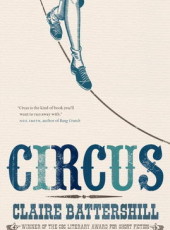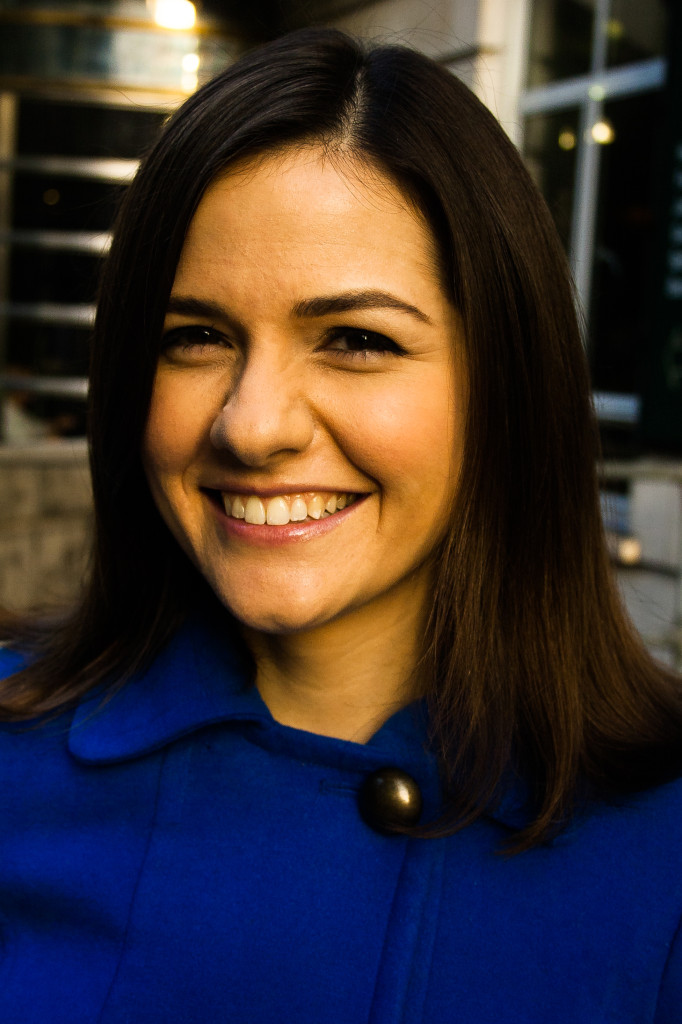In The Spotlight: Claire Battershill

 This is a special month: our Spotlight author has a book of short stories, Circus, coming out right now! I asked the lovely, whip-smart Claire Battershill to be in the Spotlight because I'm curious about how she works. I wanted to learn about her writing process.
This is a special month: our Spotlight author has a book of short stories, Circus, coming out right now! I asked the lovely, whip-smart Claire Battershill to be in the Spotlight because I'm curious about how she works. I wanted to learn about her writing process.
Claire is an academic and an author. I am not an academic (I thought I might have been, until I realized that I didn't like taking English Literature classes!), so I am fascinated by English professors who are also short fiction writers and postdoc fellows who are also novelists. How do they manage to turn off the critic and write their own fiction, when they must study literature so assiduously from the perspective of the critic?
I hope you love her excerpt, below, as much I as I do. Claire uses extreme, patient detail (Perky's flaking, sweating painted face) and compelling metaphor ("The place she comes from seems to have grown small and hard inside her, like the almond-shaped pit inside a very squishy apricot.") to cast her spell. It is pure pleasure to experience the truer-than-true nature of Margaret's world. I mean, come on: how can you not adore that sheep's "sassy backwards shuffle"?

Meet Claire
Claire Battershill is originally from Dawson Creek, BC. Her fiction, poetry, and reviews have been published in a variety of Canadian and international magazines including The Malahat Review, Fiddlehead, PRISM: International and The Times Literary Supplement. She has a PhD in English Literature from the University of Toronto and is currently a postdoctoral fellow at the University of Reading in the UK. Her first book of short stories, Circus, will be published by McClelland & Stewart in April 2014.
Handwriting or computer?
Handwriting for notes and doodles, computer for composition, handwriting for edits.
Page count or time count?
Pages.
First drafts or revision?
First drafts.
Writing solo, writing partner, or writing group?
Solo.
Earplugs/quiet or headphones/music?
Quiet.
Why do you write?
Because it’s fun! I love the feeling of the first draft, especially. That, for me, is the best part: when it’s all new and messy and a little unpredictable and I’m letting myself play around. Zadie Smith calls mid-novel periods of extreme focus “moments of magical thinking” when everything in the world seems to make itself felt in your writing. Short stories can be, I think, basically a genre of “magical thinking” because when you’re lucky you can sustain that feeling all the way through the first pass. They don’t come always when you write, or even often, those moments, but when they do there is a kind of maniac bliss and confidence about them. I love that. Of course, it gets to be harder work when you come out of that first phase. It’s like you’ve gone up in a hot air balloon and had a new view of the world, and then you need to look at the thing deflated and see if its engine is structurally sound enough to take a second outing and bring other people up with you. The hard, mechanical work is worth it, though, if you can really enjoy the soaring days. There’s nothing better.
Who are you reading these days for influence, and why?
The balloon metaphor above was partly inspired by a delightful book of non-fiction: Falling Upwards by Richard Holmes. It’s about the history of hot air balloon travel. A novel from a couple of years ago that I still can’t stop thinking about and have now read several times is Ali Smith’s There but for the, which is challenging and real and so formally interesting. It’s about a man who goes into an upstairs room during a dinner party and won’t come out, so the premise is wonderful, and the style is raw and exposed in the best way. For short stories, everyone’s been talking about George Saunders and there’s a good reason for that: Tenth of December is masterful and good-hearted. I like the opening story best. A dear friend introduced me to Nicholson Baker’s writing a few years ago and I admire his work, too, because he’s so precise about small things. I just finished his latest collection of essays The Way the World Works, and there’s a piece in there about the delights of doing archival research, which I found very pleasing and true. I’ve also been reading translations of old Icelandic sagas and quite a lot of early twentieth century biographies of English eccentrics. So: a bit of a mixed bag.
Tell us about the excerpt you're sharing today
This story, tentatively titled “Ladies Barrel Racing,” is about Margaret Stock, who was brought up in an aristocratic English household. She moves to North America and takes up a job as a doctor in a small town. One of the things she does as part of that job is to work as a medical attendant for the local rodeo. The excerpt below is near the beginning of the story when she’s been asked to help out with a non-medical task.
Excerpt from Ladies Barrel Racing, by Claire Battershill
“Mutton busting?” Margaret repeats, pronouncing her “t”s.
“Here’s the victim,” says Perky, the Rodeo clown, holding a reluctant-looking animal by the scruff of the neck. “The kid needs to learn how to ride, and he can’t start on a full-size horse. Even the ponies are too big. Don’t worry about it, we give ’em all ribbons, even if they fall off.” Perky nods at a small boy who is standing nearby, cracking his knuckles and stretching his neck from side to side. Despite Perky’s enormous painted frown, he grins expectantly at Margaret with his real mouth. She can’t help staring through the gap where one of his front teeth used to be.
“I’m terribly sorry, but I don’t understand.”
“Pick up the kid, and put him down on this fella’s back.” Up close, the textures of Perky’s face are all wrong: the white of his frown is flaking in the dry heat and the sweat on the tip of his nose makes the red paint run into his nostrils. Margaret picks up the child. Should she ask the boy’s name? Reassure him? He can’t be more than five years old. Margaret errs on the side of caution and says nothing as she places him on the back of the sheep. The little boy holds on to the tufts of wool around the animal’s neck with alarming persistence until finally the sheep gives a sassy backwards shuffle and sends him flying so that he lands face first in the dirt. Margaret sprints to the rescue, but before she can even ask where it hurts and how bad the pain is on a scale of one to ten, the dust-covered miniature bareback champion is up and waving at the crowd with one hand, his other hand outstretched, palm up, in expectation of his ribbon.
In her interview for the medical residency position she now occupies, the panel members were skeptical about her ability to handle the rough and tumble setting of her assignment. Margaret convinced them with words she hadn’t expected to say and hadn’t thought through until the question was asked directly. “An adventure,” she had said too loudly in the interview, and then over and over to herself in the weeks that followed, just mouthing the word. At this moment, however, in the dusty fairground, knee deep in Wellington boots and wearing a baseball cap embroidered with a cartoon image of a buffalo, Margaret is entirely without the level of conviction she mustered under pressure. The place she comes from seems to have grown small and hard inside her, like the almond-shaped pit inside a very squishy apricot. How is it possible that those two blurted words landed her here, at the Jackson Rodeo, surrounded by cowboys? And these are not make-believe, ornamental cowboys. These are not Hollywood-clean men wearing kerchiefs to keep up appearances. No, they’re shit-on-boots cowboys with hands like plates of meat.
Note: These monthly spotlights showcase Mysterious Middle Drafts (MMDs). That means they are somewhere between first drafts and final drafts. This is a challenging stage! Emerging writers bravely share their work-in-progress here for discussion, but this is not a book review or critique: this is a venue for the appreciation of Mysterious Middle Drafts. Thank you for making this writing space safe and supportive.
Discussion:
-
What remains with you after reading Claire's work?
-
Can you articulate what’s working in this excerpt – and more importantly, why it’s working?
-
How is your own writing practice like Claire's? How is it different?
Please leave a comment below. And thank you, Claire!

2 comments
Leave a comment